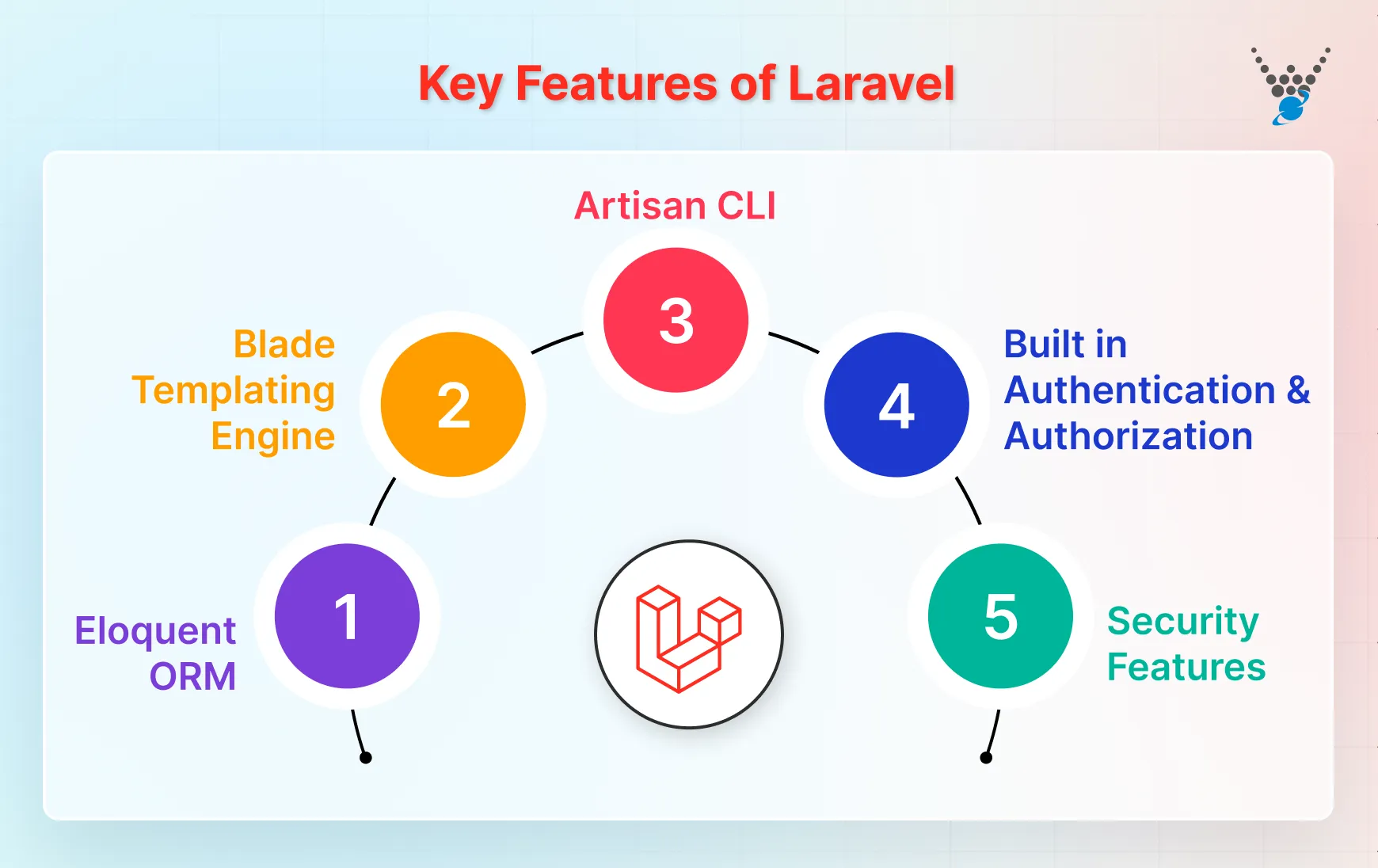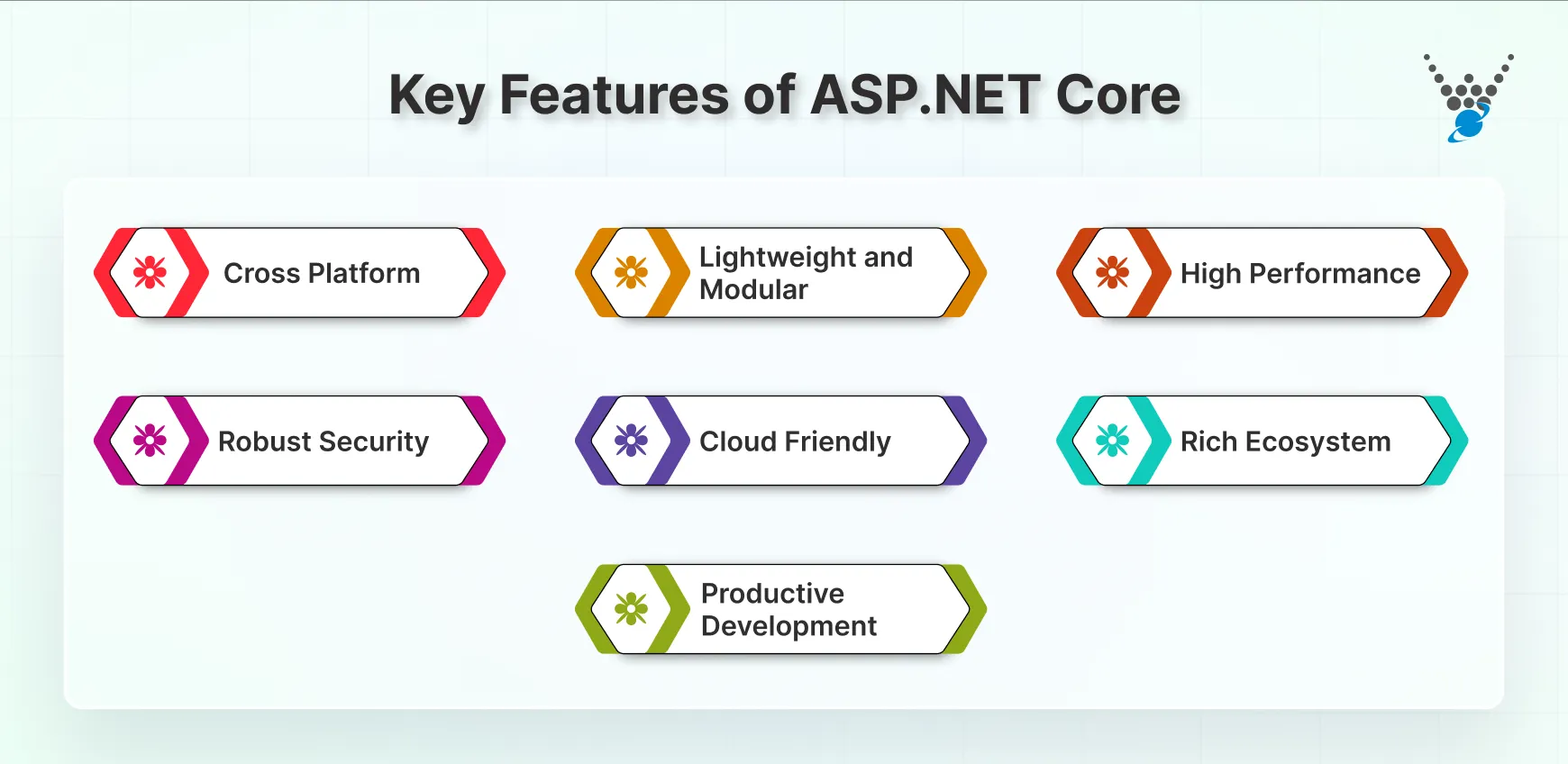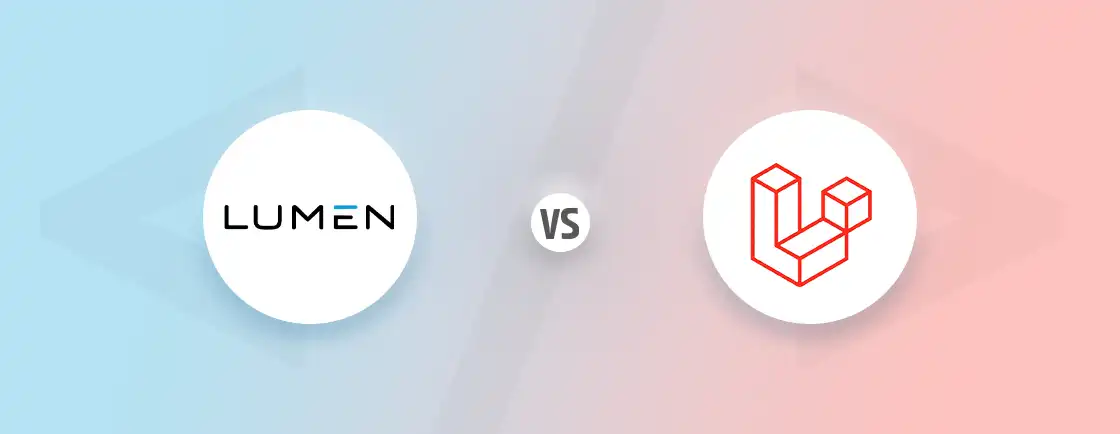Quick Summary
This blog compares Laravel vs ASP.NET Core by breaking down their key features, strengths, and real-world use cases. Learn how Laravel excels in startups, SaaS, and eCommerce with fast development and flexibility, while ASP.NET Core suits enterprise, banking, healthcare, and cloud apps with strong security and scalability. Get clear insights to decide the best framework for your next project.
Table of Contents
Choosing the right framework is one of the most important decisions when starting a web project. The framework you pick can shape your application’s performance, security, and long-term success. Two of the most popular options today are ASP.NET and Laravel.
ASP.NET, backed by Microsoft, is widely used for building enterprise-level applications. Laravel, built on PHP, is known for its simplicity and developer-friendly design. Both have strong communities, proven track records, and unique strengths. But how do they compare against each other?
In this blog, we will compare ASP.NET vs Laravel framework and help you choose the right one. So, let’s get straight to the comparison.
What is Laravel Framework? Features & Benefits Explained
Laravel is an open-source, free-to-use PHP framework renowned for its elegant syntax. It also offers features and a large community. It follows the Model-View-Controller (MVC) architecture, promoting code organization and maintainability. Laravel is known for its rapid development capabilities and extensive ecosystem of packages.
Key Features of Laravel

- Eloquent ORM. Built-in Object-Relational Mapper simplifies database interactions and reduces boilerplate code.
- Blade Templating Engine. Offers a clean and expressive way to create dynamic web pages with minimal PHP code.
- Artisan CLI. Powerful command-line tool for managing project tasks, migrations, and generating code.
- Built in Authentication and Authorization. This simplifies user management in Laravel applications and security implementation.
- Security Features. Laravel prioritizes security with features like CSRF protection and input validation.
Simply put, Laravel is a free, open-source PHP framework that uses the MVC pattern to keep code organized and easy to maintain. It offers powerful tools like Eloquent ORM, Blade templating, Artisan CLI, built-in authentication, and strong security features for faster, safer web development.
What is ASP.NET Core? Key Features & Advantages
Previously known as ASP.NET, it has turned to ASP.NET Core now. This is just a redesign and re-implementation of its previous version. It is a modern, open source web framework built by Microsoft on top of the .NET platform.
It’s designed for building high-performance, cross-platform web applications and web APIs. Unlike its prior version, ASP.NET, it’s modular and runs on Windows, macOS, Linux, and Docker, offering greater flexibility and reach.
Key Features of ASP.NET Core

- Cross Platform. It lets you build and deploy your applications on Windows, macOS, Linux, or Docker. You can reach a wider audience and leverage different hosting environments.
- Lightweight and Modular. The modular design allows you to choose and use only the components you need.
- High Performance. Optimized for speed and scalability, ASP.NET Core handles high-traffic demands with ease.
- Robust Security. Includes built-in security features like anti-CSRF, HTTPS enforcement, and user authentication. This helps protect your applications.
- Cloud Friendly. Designed to work seamlessly in cloud environments like Azure, AWS, and Google Cloud Platform.
- Rich Ecosystem. Benefit from a vast library of packages and tools available through NuGet. This extends its functionality and meets diverse needs.
- Productive Development. Enjoys strong tooling support with Visual Studio, making development faster and more enjoyable.
ASP.NET Core offers a compelling combination of performance and security, making it a strong contender for your next web project. Whether you’re familiar with the .NET ecosystem or seeking a cross-platform framework, ASP.NET Core is worth considering.
Laravel vs ASP.NET Core: Key Differences You Must Know
Choosing the right framework requires understanding its strengths and project fit. Laravel and ASP.NET Core share core features like MVC and authentication. Still, the key differences in platform and performance impact development and application characteristics.
| Factor | Laravel | ASP.NET Core |
|---|---|---|
| Programming Language | PHP | C#, F#, VB.NET |
| Framework Type | Open-source, community-driven | Open-source, backed by Microsoft |
| Performance | Considered slightly slower due to interpreted nature, but optimized for efficiency | Faster due to compiled code, but resource usage can be higher |
| Scalability | Horizontal scaling (adding more servers) | Vertical scaling (upgrading resources on existing server) and horizontal scaling |
| Cross-Platform | Primarily runs on Linux and Windows | Runs on Windows, Linux, and macOS |
| Learning Curve | Easier to learn for PHP developers | Steeper learning curve for non-.NET developers |
| Cost | Free (open-source) | Free (open-source), but may require paid hosting and tools |
| Community | Large and active, with extensive resources and documentation | Active, with strong Microsoft support |
The best framework is the one that best compliments your project and team. Consider consulting a framework development company for a more in-depth analysis and tailored recommendations. They can assess your project’s specific needs and suggest the optimal solution.
Laravel vs ASP.NET Core: Detailed Comparison (Architecture, Security, Scalability)
Choosing the right web development framework demands an understanding of its functionalities and how they align with your project’s specific needs.
1. Architecture
The architecture is the foundation of any web application. It plays a crucial role in its performance, maintainability, and scalability.
Laravel Architecture
- MVC. Laravel sticks strictly to the Model-View-Controller (MVC) architectural pattern. It is a widely recognized approach for structuring web applications. This pattern promotes separation of concerns, and testability, making it ideal for complex applications.
- Models. Handle data access and manipulation, representing data entities like users, products, or orders.
- Views. Responsible for displaying data to users, and rendering HTML templates using Blade, Laravel’s templating engine.
- Controllers. Act as the mediator between models and views. It receives user requests, processes data, and directs the application to the appropriate view.
Laravel’s MVC structure provides a clear separation of responsibilities. This benefits in enabling you to focus on specific aspects of the application without worrying about other layers. This modularity improves code maintainability and facilitates debugging.
ASP.NET Architecture
- MVC. Follows the same principles as Laravel’s MVC, separating data access, presentation, and user interaction.
- Razor Pages. A streamlined approach that combines models, views, and controllers into a single Razor Page template. This simplifies development and reduces code duplication.
Both architectural patterns in ASP.NET Core promote code organization and maintainability. This makes it a versatile choice for developing web applications of varying complexity.
Verdict. Laravel is Ideal for projects demanding strict MVC adherence. This lets you control routing and have deep familiarity with PHP development. ASP.NET Core is excellent for projects prioritizing ease of development with Razor Pages. It offers flexibility through both MVC and Razor Pages, and familiarity with the .NET ecosystem.
2. Scalability
Scalability is important for each type of web application. It ensures they can handle increasing traffic and user demands without performance degradation.
Laravel Scalability
- Horizontal Scaling. Laravel primarily scales horizontally, meaning you add more servers to distribute the workload. This approach is cost-effective for high traffic bursts but requires load balancing and infrastructure management.
- Stateless nature: Laravel applications are naturally stateless. This makes it easier to scale horizontally as they don’t rely on server-side session management.
- Caching. Laravel offers caching mechanisms that reduce database load and improve performance, further improving scalability.
- Limitations. Horizontal scaling can be complex to manage, and resource utilization might be higher compared to vertical scaling.
Managing multiple servers can add complexity to infrastructure and deployment processes. While horizontally scalable, database infrastructure might require separate scaling solutions.
ASP.NET Core Scalability
- Hybrid Approach. ASP.NET Core supports both horizontal and vertical scaling. You can add more servers (horizontal) or upgrade server resources (vertical) based on your requirements.
- Vertical scaling. Upgrading server resources, like CPU and RAM, can offer faster performance improvements for smaller applications.
- CLR compatibility. ASP.NET Core leverages the Common Language Runtime (CLR). This offers efficient memory management and scalability optimizations.
- Potential Complexity. Managing both horizontal and vertical scaling can be more complex than just horizontal scaling.
Upgrading server resources can be more expensive than adding servers. Setting up and managing Azure infrastructure can also demand additional expertise.
Verdict. Laravel benefits high traffic applications demanding cost-effective horizontal scaling and stateless architecture. ASP.NET Core offers flexibility with both vertical (upgrading server) and horizontal scaling, suitable for diverse application sizes and preferences.
3. Security
Securing your web application against ever-evolving threats is vital. Both Laravel and ASP.NET Core offer security features, but their approaches differ.
Laravel Security
- Built-in Security Features. Laravel offers features like hashing, secure input validation, and middleware for custom security measures.
- Community Driven Ecosystem. The vast Laravel community contributes numerous security packages for additional protection. It covers portions like Laravel authentication, authorization, and encryption.
- Regular Updates. Laravel releases frequent security patches. This helps in ensuring you benefit from the latest protection against vulnerabilities.
When leveraging Laravel, shared hosting might introduce security risks due to shared resources. You must consider managed Laravel hosting for enhanced security. Also, implementing custom security logic requires careful development and testing to avoid vulnerabilities.
ASP.NET Security
- Integrated with Microsoft Security Tools. Leverages Microsoft’s robust security infrastructure. It includes identity management with Azure Active Directory and role-based authorization.
- OWASP Top 10 Compliance. ASP.NET Core is designed to address the OWASP Top 10 web application security risks, providing a solid foundation for secure development.
- Automatic Updates. It benefits from automatic security updates through Windows Update. This ensures your application stays protected.
If you are unfamiliar with the .NET ecosystem then you might face a steeper learning curve for security features. Further, integrating deeply with Microsoft tools can lead to vendor lock-in, impacting flexibility in some scenarios.
Verdict. Laravel includes built-in functionalities but also requires deeper PHP knowledge and proactive vulnerability management. ASP.NET Core is perfect for projects prioritizing comprehensive out-of-the-box security features. Although setting up and managing these tools will require higher coding expertise.
4. Database Handling
Data is really important for any web application. It silently powers user interactions and drives functionality. Choosing the right framework depends not only on features but also on its ability to handle data efficiently and securely.
Laravel Database Handling
- Eloquent ORM. Laravel utilizes Eloquent which simplifies database interaction. It enables you to work with databases using an object-oriented approach, making code more readable and maintainable.
- Supported Databases. Supports a wide range of popular databases, including MySQL, PostgreSQL, and SQLite.
- Built-in Features. Offers features like migrations for managing database schema changes. It is used for creating initial data, and query builders for complex SQL queries.
Complex database operations require manual optimization.
ASP.NET Core Database Handling
- Supported Databases. Supports numerous databases, including MySQL, PostgreSQL, SQLite, and Oracle.
- Code-First Approach. Offers code-first development, allowing developers to define their database schema within code. This promotes maintainability and consistency.
- Integration with Microsoft Tools. Integrates seamlessly with other Microsoft tools and frameworks for data management.
Similar to Laravel, complex operations might require manual optimization for optimal performance. Paid tools or services might be needed for specific needs beyond built-in features.
Verdict. Laravel works well for developers familiar with ORMs and needs flexible database support. However, ASP.NET Core is suitable for developers comfortable within the Microsoft database ecosystem. But it requires a steeper learning curve compared to Laravel.
5. Dependency Management
Relying solely on core framework functionalities in modern web development is rare these days. External libraries and packages improve functionality. But, managing these dependencies is crucial for a healthy codebase.
Laravel Dependency Management
- Composer. Leverages Composer, a powerful dependency management tool for PHP. It simplifies installation, updates, and dependency resolution, ensuring consistency and avoiding conflicts.
- Large Ecosystem. Benefits from a vast ecosystem of Laravel-specific packages available on Packagist. This addresses diverse needs and functionalities.
- Flexibility. Composer offers flexible dependency management options. This enables defining specific versions, minimum requirements, and even custom repositories.
You must understand Composer’s commands and configuration. This might require some initial learning curve for one unfamiliar with the tool. Also, keeping track of package updates and potential conflicts might require ongoing maintenance efforts.
ASP.NET Core Dependency Management
- NuGet. Operates NuGet, a widely used package manager for .NET projects. It integrates seamlessly with Visual Studio and offers a familiar interface for .NET developers.
- Security. Benefits from Microsoft’s commitment to security, ensuring packages are rigorously reviewed and maintained.
While NuGet has a large ecosystem, it might not offer the same breadth of Laravel-specific packages compared to Packagist. Also, certain packages within NuGet might require paid licenses, adding to project costs.
Verdict. Laravel is specific to the Laravel ecosystem. It is tailored for developers comfortable with Composer and seeking Laravel-specific packages and flexibility. ASP.NET Core provides package support beyond Laravel-specific offerings. But, it potentially requires paid licenses for some packages.
6. API integration
APIs (Application Programming Interfaces) play an important role in modern web development. It enables communication between applications. Choosing the right framework for API integration depends on your specific needs and priorities.
Laravel API Integration
- Laravel Lumen. Offers Laravel Lumen, a lightweight framework built specifically for building APIs. It provides a streamlined development experience with minimal overhead.
- RESTful API Design. Encourages and supports RESTful API design principles, ensuring consistent and predictable API behavior.
- Extensive Libraries. Benefits from a vast ecosystem of Laravel packages for API authentication, rate limiting, and other functionalities.
ASP.NET Core API Integration
- Built-in HttpClient. Similar to Laravel, ASP.NET Core offers a built-in HttpClient for making API requests and simplifying common tasks.
- Strong HTTP Support. The .NET framework provides HTTP libraries and tools for advanced API interaction and customization.
- Azure Integration. Integrates with Azure services and APIs, simplifying integration within the Microsoft ecosystem.
- Security Focus. Microsoft’s focus on security benefits API integration by offering built-in security features and best practices documentation.
The .NET framework and its HTTP libraries might have a steeper learning curve for developers unfamiliar with the ecosystem. While ASP.NET Core offers extensive support, dedicated API packages might be less readily available compared to the Laravel ecosystem.
Verdict. Laravel includes a large ecosystem of pre-built API packages and built-in features for various needs. It is ideal for projects seeking cost-effectiveness and flexibility. ASP.NET Core leverages strong .NET libraries for customization and integrates with Azure services. It is suitable for projects requiring deep integration and security within the Microsoft ecosystem.
Based on this comparison, if you find Laravel to be more suited to your needs, get our Laravel development services.
Real-World Use Cases
Laravel is well-suited for:
- Startups: Quick setup and low entry cost make it a natural fit for new businesses.
- SaaS Products: Flexible architecture and ready-to-use features support fast product launches.
- eCommerce: Strong support for authentication, payment systems, and order management.
ASP.NET Core is widely used for:
- Enterprise Applications: Reliable and scalable for complex organizational needs.
- Banking and Finance: High security and stability required for critical systems.
- Healthcare: Compliance-focused applications with strict data protection needs.
- Cloud-Native Apps: Excellent support for building distributed and scalable cloud solutions.
Other Backend Frameworks and Technologies Comparison Blogs:
Conclusion
Both Laravel and ASP.NET Core are strong frameworks, but they serve different needs. The right choice depends on the type of project you are building and the goals you want to achieve.
- Laravel is known for its clean syntax, active community, and large set of ready-to-use packages. It works well for startups, SaaS products, and eCommerce projects where speed, flexibility, and cost matter.
- ASP.NET Core is built for enterprise-scale applications. It offers tight integration with Microsoft services, advanced security, and strong performance across platforms. It is often chosen for banking, healthcare, and cloud-native applications where reliability and compliance are key.
At the end of the day, the best framework is the one that helps your team build applications that are secure, scalable, and easy to maintain. Ready to take the next step? Let our experienced web developers for hire help you with tailored solutions.
FAQs About Laravel vs ASP.NET
Is Laravel or ASP.NET more suitable for building RESTful APIs?
Laravel is often preferred for building RESTful APIs due to its simplicity and flexibility in handling routing, middleware, and serialization. ASP.NET also offers tools for API development, with features like ASP.NET Web API, making it a strong contender depending on the project’s requirements.
How do Laravel and ASP.NET handle testing and debugging processes differently?
Laravel emphasizes testing through its built-in testing utilities like PHPUnit and Laravel Dusk. This facilitates efficient unit, integration, and browser testing. ASP.NET provides testing support through frameworks like MSTest and NUnit, offering debugging tools within Visual Studio for seamless debugging experiences.
Between Laravel and ASP.NET, which framework provides better support for modern front-end technologies?
Laravel excels in integrating modern front-end technologies with its support for Vue.js and React. It offers developers flexibility in creating interactive user interfaces. ASP.NET, on the other hand, offers strong integration with front-end frameworks like Angular and React, to leverage Microsoft’s ecosystem for efficient development.
Pick the Best Framework for Your Project
Compare ASP.NET and Laravel side-by-side to find the perfect fit for your development needs. Discover their strengths, weaknesses, and ideal use cases before making your choice.





